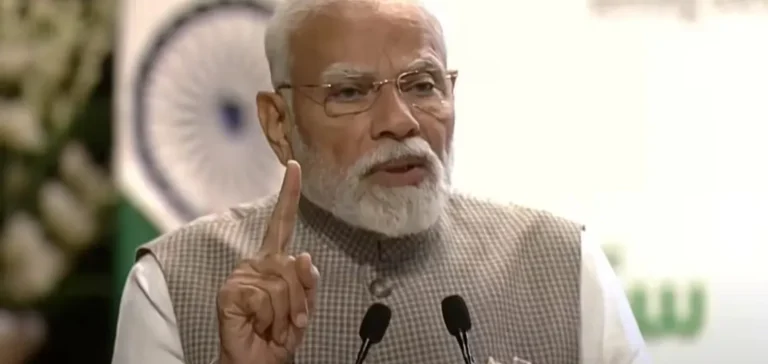Indian Prime Minister Narendra Modi reaffirmed his country’s commitment to reducing its energy dependence during his annual Independence Day address. This declaration comes amid rising tensions with the United States, which is considering doubling the tariffs currently applied to Indian goods. The reason: India’s ongoing purchases of Russian crude oil, seen by Washington as a critical source of revenue for Moscow during the war in Ukraine.
Faced with an American ultimatum setting August 27 as the deadline to cut ties with Russia, Narendra Modi emphasized the need for India to achieve complete energy autonomy. As one of the world’s largest oil importers, the country still heavily relies on external suppliers to meet its growing energy demand. Modi described energy self-sufficiency as a core objective essential to the nation’s economic sovereignty.
Tariff Pressure and Geopolitical Stakes
The U.S. administration, under Donald Trump, has already imposed 25% tariffs on certain Indian products. In the absence of an agreement by the end of August, these tariffs could rise to 50%. The policy aims to force New Delhi to revise its trade relations with Moscow, viewed by Washington as indirect support for the Russian economy during wartime.
In response, Modi reiterated his commitment to protecting India’s strategic interests, particularly in the agricultural sector, which is also targeted by the proposed tariff measures. Pressure on oil supplies is challenging India’s existing economic and trade balances amid a volatile international context.
Industrial Expansion and Technological Sovereignty
Beyond energy policy, the Indian government is intensifying efforts to develop key industrial sectors. Modi called on the country’s engineers and scientists to ramp up domestic production of semiconductors, fighter jet engines, and defense systems. He stated that India-made semiconductors would be available on the market by the end of the year.
Simultaneously, the Indian government is aiming to strengthen its space capabilities, with plans to build a national space station. No precise timeline has been announced, but the initiative is part of a broader strategy for technological and industrial sovereignty intended to reduce the country’s exposure to external pressures.
Strained Indo-U.S. Relations
Despite rising tensions, the United States marked India’s Independence Day through a statement by Secretary of State Marco Rubio, who reaffirmed the strength of the strategic partnership between the two nations. His remarks come at a diplomatically sensitive moment, shaped by diverging interests regarding global energy flows and geopolitical alignments.
The current dynamics may have long-lasting implications for India’s energy strategy. Faced with complex trade-offs between economic stability, industrial autonomy, and geopolitical realignment, New Delhi will need to adapt its energy policy to the evolving constraints of global trade.






















